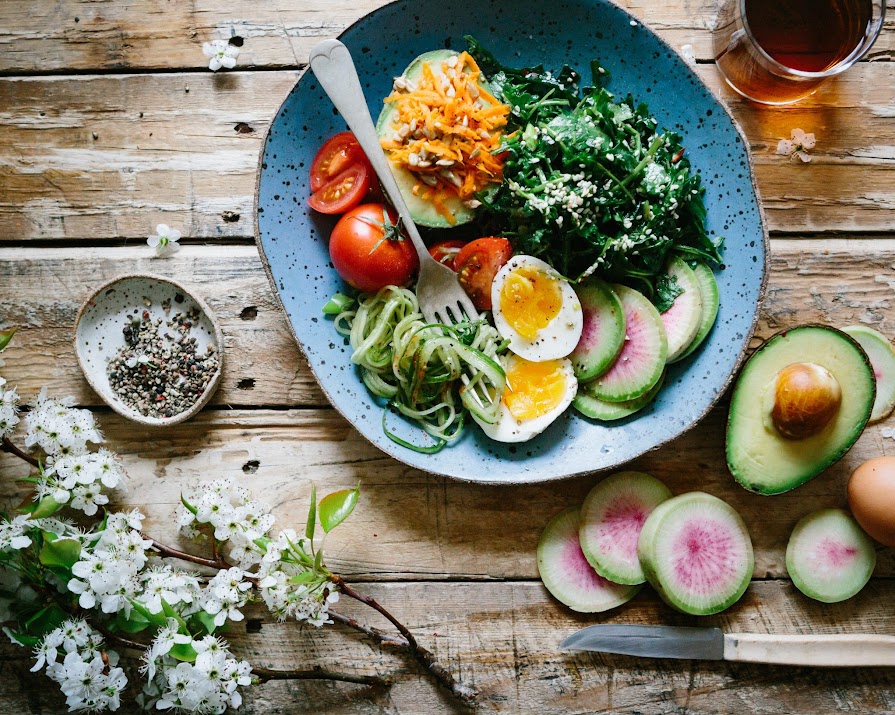
By IMAGE
08th Feb 2018
08th Feb 2018
Ahead of our Peak Performance (Whilst Avoiding Burnout) event, we asked Dietitian – Paula Mee what the top five foods to include on your shopping list are, to ensure that you are fueling your brain and body efficiently and effectively to achieve your ‘Peak Performance’.
Cognitive reserve is a relatively new concept in cognitive health. It is the brain’s ability to invent and devise alternate ways of getting a job done. It’s a bit like suddenly accelerating a four-wheel drive to avoid an obstacle on dodgy terrain. The brain has the ability and resourcefulness to change the way it operates to handle various challenges. A healthy cognitive reserve helps us cope better with unexpected stress. We can build and sustain our cognitive reserve through a lifetime of education, curiosity, movement and with the right fuel. That’s diet, especially anti-inflammatory foods. Food is fuel for our working bodies as well. It keeps us active and alert through our busy days and allows us to perform at our best.A combination of diet, exercise and lifestyle will determine stamina levels through our busiest and most demanding days.
There are four dietary components that provide us with energy; carbohydrate, protein, fat, and alcohol. It’s obvious too many calories from alcohol are a problem for a number of reasons.
We need a certain amount of unrefined wholegrain carbohydrates, depending on how active we are and despite the recent negative publicity. Current dietary trends bring a sharper focus on protein-rich foods, yet carbohydrates should not be completely ignored. All carbohydrate is broken down into glucose and this is the brain’s preferred fuel. Our ability to concentrate, focus and absorb information is highly influenced by our carbohydrate intake.
Choosing wholegrain foods ( e.g. brown rice, porridge oats) which are less processed and have a lower glycaemic index than refined or white versions, results in a more steady sustained energy over a longer period of time. That way we are less likely to experience slumps in energy at critical times in the day. High fibre breakfast cereals, such as porridge, are encouraged in the morning time for this reason. You can adjust your intake during the day depending on your gym classes or your exercise regime.
Protein-rich foods, such as fish, poultry, lean meat, chickpeas, beans, lentils, nuts, and seeds help to keep us alert, as opposed to meals based on high fat or processed foods that can result in lethargy and fatigue.
B Vitamins, such as vitamin B6 and B12 plays an important role in converting macronutrients into energy. A deficiency in B vitamins is associated with fatigue and lethargy. Vitamin B12 is mainly found in animal foods such as fish, poultry, meat, eggs, and milk. Vitamin B6 is also found in these foods, as well as foods such as chickpeas, potatoes and nuts and seeds.
Dehydration is also associated with poor performance; low energy levels, fatigue, and reduced concentration. It is important to keep hydrated and drink water throughout the day. Caffeine is a known energy stimulant. It provides a temporary alertness by stimulating an increase in blood glucose levels and adrenalin. However, more than 3 to 4 cups of coffee a day can cause irritability, restless and disrupt sleep patterns for some. Energy drinks are high in sugar and caffeine and can have similar effects on energy levels.
Stress, rushed and irregular eating habits can leave us with a digestive system that is constantly challenged. Peak performance is dependent on the integrity of the gut and its ability to work effectively. The vast majority of our body’s feel-good hormone serotonin is produced there. If your gut symptoms are disruptive and persistent you may need to see a gastroenterologist. Your doctor may want to rule out coeliac disease and inflammatory bowel disorders.
If you have irritable bowel disease, dietary changes can often help symptoms. Consider making an appointment to see a dietitian to discuss the low FODMAP diet. This is a new approach for the management of IBS symptoms and has been proven to be effective for about 75% of people that try it.
Top 5 foods for your shopping list – Peak Performance
There is nothing new in the fact that a person’s nutrition can affect their mood, behaviour, and brain function.The brain accounts for about 2% of our body weight but uses up about 20% of our total daily calories. Although no one “miracle” food is going to boost your brain and body’s health alone, regularly eating foods like these in a healthy pattern of food over time, will help you function at your best
1. Opt for wholegrains.
Like everything else in your body, the brain cannot work without energy; it demands a constant supply of glucose, which we get from carbohydrates. But it’s not enough to choose any old carbohydrate; we should be fussy about the ones we choose. Carbohydrates lower in glycemic index are broken into glucose slower than refined processed carbohydrates, thereby providing a steadier supply of energy to the brain. The B vitamins found in wholegrains are also important for ensuring a healthy nervous system. If you tend to rely on white bread and sugary cereals as your main type of carbohydrates you are not doing your brain any favours. Not only do they lack essential fibre, but an excess can lead to a slump in energy levels and subsequent snacking on sugary foods.
2. Green Veggies
Including lots of different fruits and vegetables can help you to eat a wide range of vitamins, minerals, and phytonutrients or plant nutrients. Populations who have diets rich in fruits and vegetables have lower levels of certain cancers, heart disease, and stroke. Your immune system benefits as well from a diet rich in fruits and vegetables. Green vegetables are rich in antioxidants vitamin A &C. They also contain vitamin K and some magnesium, potassium, and iron. Greens are a great source of natural fibre, helping with digestion and slowing the rate at which your body absorbs sugar. This prevents sharp rises in our blood glucose levels.
3. Oily fish
Some fats are essential. Of the solid matter in the brain, 60% is fat. One of the best brain-boosting foods you can choose is fish, especially oily fish such as salmon, mackerel, trout, and sardines. These are rich in the essential omega 3 fatty acids, DHA and EPA. We cannot make these in the body so we must get them through diet. The anti-inflammatory omega 3 fats are critical for cognitive function, heart, and joint health. Increasing these fats at the expense of hydrogenated and certain saturated fats lends to a better ratio of fats.
Aim for 2 portions of fish every week, one to be oily.
4. Get a blueberry boost
When we talk about getting “rusty” we may not be far off. Oxidation, the process that causes metal to rust, can also damage brain cells. This oxidative stress plays a role in many diseases associated with ageing such as dementia. All berries, not just the blueberry, contain powerful antioxidants. So including these more often may limit the damage by disarming potentially cell injuring free radicals in the body. Eat them as a snack with probiotic yoghurt or even add them to salads. An 80g serving has only 55 kcals.
5. Go nuts!
Like oily fish, walnuts, contain high levels of essential fatty acids that help your brain and body perform at its best. The walnut even looks like the human brain. Have a small handful as a snack or scatter over your breakfast cereal or salads for added crunch and texture. Nuts also contain vitamin E and vitamin B6, making them an excellent source of nourishment for your nervous system and brain. Small amounts of omega 3s can also be found seeds such as sunflower and pumpkin.
FOR TICKETS
BOOK ONLINE,
CALL 01 271 9687 OR
EMAIL BUSINESS@IMAGE.IE
Photo by Brooke Lark on Unsplash

























